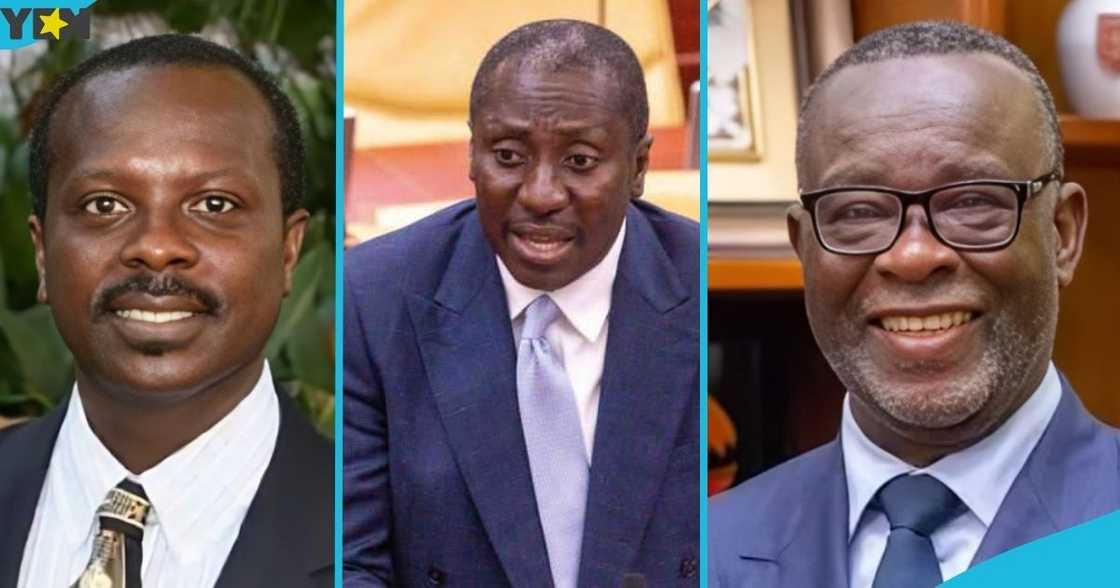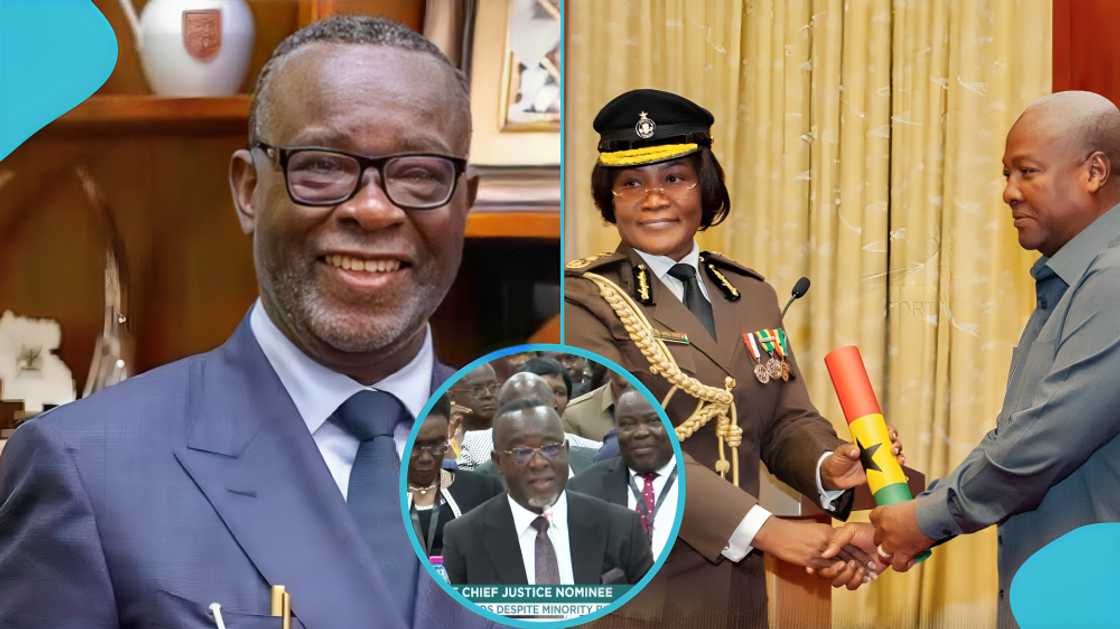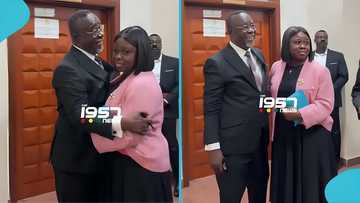- The Minority Caucus in Parliament boycotted the vetting of Chief Justice nominee Paul Baffoe-Bonnie on November 10, 2025
- Prof Stephen Kwaku Asare criticised the boycott, calling it a “symbolic sulk” that failed to achieve any meaningful purpose
- He argued that the Minority missed an opportunity to hold Baffoe-Bonnie accountable and engage in the democratic process
Lawyer and political commentator Professor Stephen Kwaku Asare has slammed the Minority Caucus for boycotting the vetting of Chief Justice nominee Paul Baffoe-Bonnie.
The Minority members of the Appointment Committee of Parliament boycotted the vetting of the Chief Justice nominee on Monday, November 10, 2025.

Source: Facebook
Alexander Afenyo-Markin, the Minority Leader, indicated that Baffoe-Bonnie’s nomination is illegitimate due to unresolved legal challenges related to the removal of former Chief Justice Gertrude Araba Torkornoo.
“We are registering that we reject the nomination, and the record should reflect that the report of the vetting be a majority report,” Mr. Afenyo-Markin declared before exiting the chamber.
Prof Asare’s reaction to the Minority’s boycott
Prof Asare, popularly known on Facebook as Kwaku Azar, stated that boycotts are powerful instruments of protest that can be used to achieve a great purpose. However, he said the Minority’s decision to withdraw from the vetting process was poorly calculated.
The renowned lawyer consequently described the Minority’s decision as a “symbolic sulk” that served no purpose.
Prof Azar, who is based in the US, further argued that the boycott was a missed opportunity for the Minority to hold Baffoe-Bonnie accountable in the interest of the public.
“Yesterday, the Minority boycotted the vetting of the CJ nominee. Boycotts, of course, can be powerful instruments of protest. They can awaken consciences, galvanize the public, and expose injustice. Consider the Accra Boycott of 1948, organized by Nii Kwabena Bonne II to protest rising prices and to compel merchants to reduce prices,” he said.
“That was a boycott with purpose, one that combined public participation, moral clarity, and strategic pressure. But not all boycotts meet those standards. Some drain energy without yielding results, especially when used against functioning democratic processes that depend on participation, not withdrawal,” he added.
Read the Facebook post below:
Prof Asare also listed ten reasons why he believes the boycott was not useful:
- The Minority Silenced Itself: Vetting is the constitutional forum for asking questions and demanding answers. By walking out, the Minority silenced itself. Answers cannot be obtained from outside the committee room.
- The Minority Lost Its Place in the Record: Parliamentary vetting is transcribed for history. Future generations will read who asked what and who stood for what. The Minority’s absence leaves only a blank space in the national record.
- The Minority Forfeited the Power of the Question: A single pointed question can reveal more than a week of press statements. By boycotting, the Minority surrendered that power and the chance to frame the moral and legal debate.
- The Minority Strengthened What It Opposed: The process did not stop because of their absence. It simply continued unchallenged. In politics, vacuums are quickly filled, usually by those one seeks to restrain.
- The Minority Lost the Moral High Ground: Engagement is harder but nobler than exit. The boycott appeared petulant rather than principled, forfeiting the moral authority that comes from constructive participation.
- The Minority Wasted a Constitutional Privilege: Few democratic tools are as potent as the power to question a nominee for the nation’s highest judicial office. That opportunity will not return soon, yet it was discarded.
- The Minority Undermined Oversight: Checks and balances work only when both sides show up. The Minority’s absence turned oversight into oversight failure.
- The Minority Ceded the Narrative: The vetting went on. The Majority asked the questions, the nominee answered, and the public heard one voice. The Minority’s perspective vanished from the airwaves and the record.
- The Minority Reduced Politics to Symbolism: Boycotts attract short-term headlines but leave no long-term impact. Substance resides in the debate transcript, not in the empty chair.
- The Minority Forgot Who Sent Them There: Voters elected the caucus to speak on their behalf, not to stay away. Constituents expect presence, diligence, and voice, not absence, neglect, and silence.

Source: UGC
Baffoe-Bonnie shares how he met his wife
Meanwhile, YEN.com.gh reported that Justice Paul Baffoe-Bonnie opened up about how and where he first met his wife, who today serves as the Head of the Ghana Prisons Service.
He went on to reveal that his love for her was so deep that he made a personal sacrifice few would have ever imagined.
These heartfelt revelations came to light during his much-anticipated vetting for the position of Chief Justice of Ghana.
Source: YEN.com.gh
Source: Yen.com.gh













